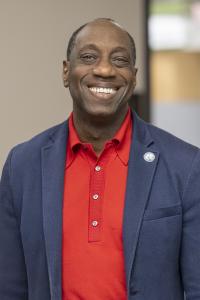
If we are to believe the headlines, Gen Z and Millennials are saying "no” to college. Researchers warn us of a gender gap in university and college enrollment. Men of color, potential first-generation college students, and in particular low-income white students have either stopped out of college following the pandemic or not returned altogether. Although enrollment continues to increase nationwide, who is actually enrolling varies across the board.
A 2024 Deloitte survey reported that a third of Gen Z and Millennials chose to forgo higher education because of financial barriers, personal circumstances, or career plans that do not require college degrees. The survey also found that more than half of Gen Z and Millennials are living from paycheck to paycheck.
But what are Gen Z and Millennials saying about college and its value? About a third do not feel financially secure enough to invest in higher education and instead are pursuing financial stability by joining the workforce in a highly lucrative job market. Others seek jobs that require credentials instead of a four-year degree. Forty-four percent of those surveyed did not believe going to college was worth the cost. Those pursuing higher education increasingly sought careers that made them less vulnerable to the disruption of AI and automation.
The real data on undergraduate enrollment is a mixed bag. The National Student Clearing House reported that undergraduate enrollment climbed by 2.1% in fall 2024, the first increase since 2020. Of special note is that enrollment increased for minority groups despite the decline from the previous year: African American enrollment increased by 2.2%; Latinos by 4.4%; and Asian Americans by 4%. Nevertheless, freshmen enrollment declined by 3.6%, leaving first-year enrollment less than a percentage point higher than it was in 2021 at the height of the pandemic. The decline was most pronounced among white students at highly selective four-year universities.
Declining birth rates and an aging population means fewer young people and a smaller pool of potential traditional-age college students. At the same time, a strong pre-pandemic hiring boom motivated some high school graduates to opt out of college. America’s demographic shift to becoming a “majority minority” nation also portends a decline in enrollment and degree attainment because minorities have had lower college-going rates historically. Meanwhile, other demographic shifts impacting K–12 education are now heading for higher education.
Gen Z and Millennials want to know the ROI on higher education and, equally importantly, want to feel a sense of belonging and connection to their college of choice. To boost college attendance, we must inform students of the variety of scholarships, loans, and other financial assistance available. We must also offer flexible class schedules in modes of instruction that suit the learning styles and needs of students. Conversely, we must tailor instruction to meet industry demand for high-skill employees.
Community colleges are leading this work despite staggering enrollment declines during the pandemic. Last fall, nationwide community college enrollments rose by 4.4% with 40% of that growth coming from high school students dually enrolled in college. Today, Moorpark College and our sister colleges in Oxnard and Ventura are rebounding from pandemic-era enrollment losses by building pathways from secondary to post-secondary education, such as through dual enrollment, and investing in short-term certificates and associate degrees that are aligned with industry-validated credentials.
Developing pathways from education to career is a core mission for the Community Colleges of Ventura County, as this benefits both our students and industry partners. For example, the Moorpark College Work-Based Learning Program connects students with local employers through paid internship opportunities. We also support university-bound students by equipping them with the skills, knowledge, and guidance to succeed beyond college. The Aspen Institute recognized Moorpark College for its students’ exemplary post-graduation success.
College, while an important tool for career advancement and income advantage, also critically fosters learning about cultural touchstones, democracy, and the ability to think in an increasingly divided society. The fact that so many in our current political climate struggle to define a “good education” signal that as a culture we care about the function of education. To that end, colleges like Moorpark College must remain affordable to provide students of all ages and backgrounds access to the meaningful connection and intellectual engagement that higher education affords. In 1951, the poet Langston Hughes asked, “What happens to a dream deferred?” That question remains relevant today as we hope that our students can dream bigger than previous generations and meet the challenges of a changing world.